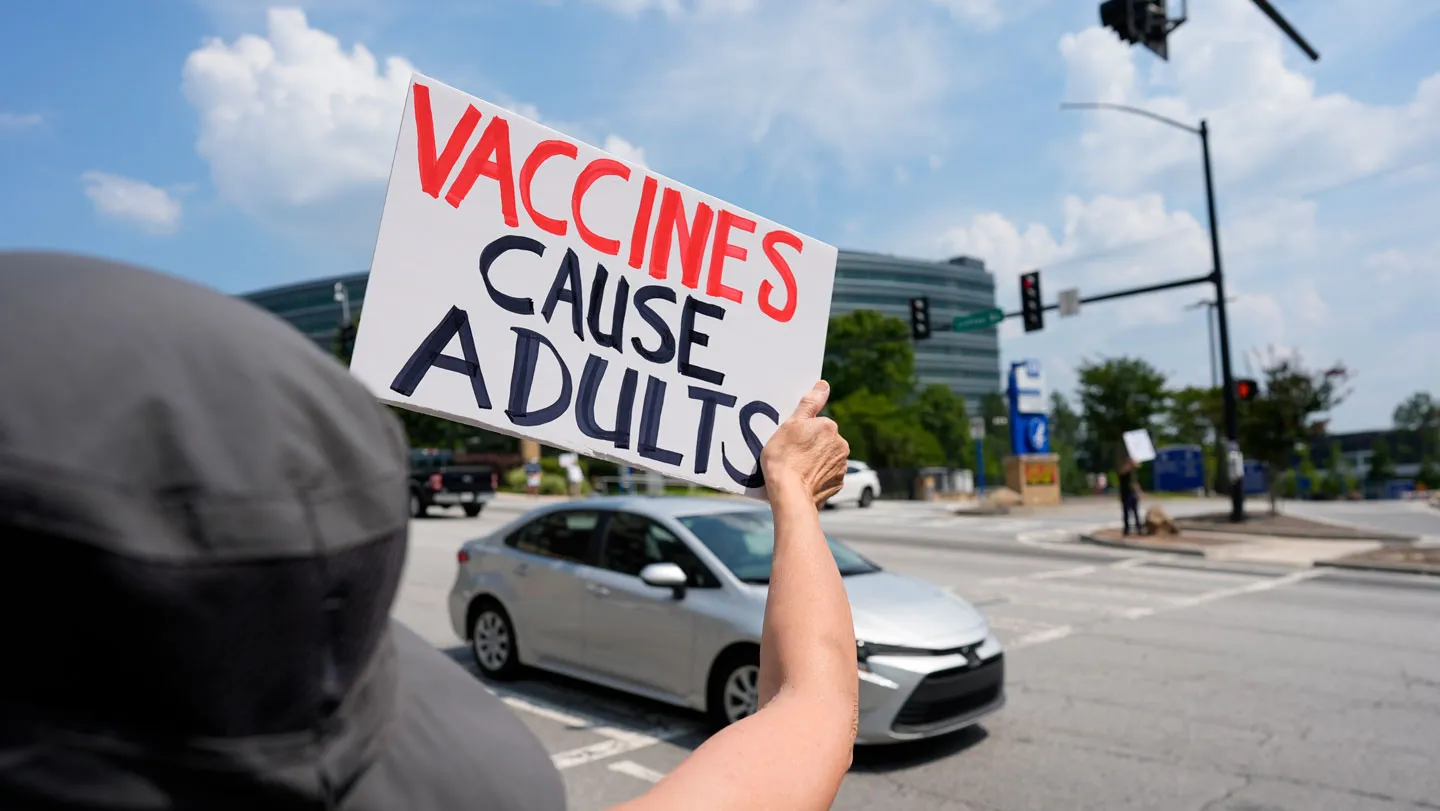Vaccine Policy in the U.S. Enters Uncharted Territory Amid Shifting Public Health Landscape
With growing skepticism, legal battles, and rapidly evolving technologies, U.S. vaccine policy is facing a complex new era. Public health experts warn that the future of immunization in America is becoming increasingly uncertain and politically charged.
The United States has long been a global leader in vaccine development and deployment, but as of 2025, the nation’s vaccine policy is navigating increasingly uncharted waters. The convergence of political polarization, misinformation, legal challenges, and emerging technologies has pushed the U. S.
into a new and uncertain phase of public health decision-making—one that may redefine how, when, and even whether vaccines are administered across large populations. Following the COVID-19 pandemic and its historic vaccine rollout, public confidence in vaccines—once nearly universal—has fractured. While many Americans embraced the lifesaving science behind mRNA technology, others became wary, citing concerns about speed, mandates, and trust in federal agencies.
These divisions have only deepened as new vaccines targeting RSV, updated COVID strains, and seasonal influenza continue to be introduced. A Post-Pandemic Reckoning In the aftermath of the pandemic, public health agencies began reevaluating their messaging and mandates. The Centers for Disease Control and Prevention (CDC), once a gold standard of global health guidance, is now walking a political tightrope, attempting to rebuild credibility among skeptics while staying responsive to rapidly changing virological threats.
“In some communities, vaccine fatigue has become vaccine resistance,” said Dr. Aria Patel, a policy analyst at the Johns Hopkins Bloomberg School of Public Health. “People aren’t just asking if vaccines are safe—they’re questioning the entire system behind them.
” State-Level Fragmentation Traditionally, U. S. vaccine policy has operated through a partnership between federal agencies and state governments.
But today, that alliance is fraying. A patchwork of state-level laws is emerging:- California has introduced digital immunization passports and remains one of the strictest states for childhood vaccine requirements. - Florida has banned vaccine mandates in schools and businesses and is challenging CDC guidelines on pediatric schedules.
- Texas , Missouri , and Tennessee have passed laws limiting the scope of public health departments to impose vaccine requirements during declared emergencies. This state-by-state divergence has created confusion for families, educators, and healthcare providers. It has also raised fears among pediatricians that vaccine-preventable diseases like measles or whooping cough may return in communities where uptake drops.
The Courtroom Becomes the Battleground Legal challenges to vaccine policy are surging. In 2024 alone, over 80 lawsuits were filed against school districts, hospitals, and public agencies regarding vaccine requirements or exemptions. The Supreme Court recently agreed to hear a case challenging the constitutionality of vaccine mandates under the Commerce Clause.
“There’s a real possibility the courts could strip federal agencies of their power to enforce vaccine-related measures,” said constitutional law expert Professor Rachel Goodman of Stanford Law. “If that happens, the U. S.
may have no uniform vaccine framework at all. ” New Technologies, New Questions Adding to the uncertainty is the rise of novel vaccine platforms. mRNA technology, once limited to COVID-19, is now being adapted for influenza, RSV, and even cancer.
Meanwhile, intranasal vaccines, self-amplifying RNA, and CRISPR-based immunization techniques are entering clinical trials. These advancements promise faster development and more targeted immune responses—but they also bring questions around regulatory oversight, long-term safety, and public acceptance. “People are still wrapping their heads around mRNA,” said Dr.
Leo Sanders, an immunologist at the NIH. “Introducing next-gen tech into a skeptical environment is going to require exceptional transparency and communication. ” Vaccines in the Culture War Crosshairs Once considered a bipartisan triumph of American science, vaccines have become politically polarizing.
The debate now reaches beyond health policy and into cultural identity, personal freedom, and distrust of institutions. Social media has only accelerated this divide. Influencers, political figures, and fringe movements use platforms like TikTok, X, and Telegram to spread narratives ranging from exaggerated side effects to full-blown conspiracy theories.
A 2024 Pew Research Center study found that 32% of U. S. adults now believe at least one false claim about vaccines, up from 19% in 2019.
Among younger adults, misinformation consumption is even higher. Impact on Childhood Immunization Perhaps the most worrisome trend is the dip in childhood vaccination rates. According to the CDC, kindergarten vaccine exemption rates hit 3.
6% nationally in 2024, the highest in modern history. Some states now report vaccination coverage for MMR (measles, mumps, rubella) below the critical 95% threshold needed for herd immunity. Pediatricians warn this could set the stage for preventable outbreaks.
“We are already seeing localized measles clusters in urban and rural areas,” said Dr. Monica Trent, a pediatric infectious disease specialist. “What worries me most is that we may not have the tools—or the trust—to contain the next one.
” Rebuilding Trust: Can It Be Done? Amid this uncertainty, some health systems are trying to reframe the narrative. Grassroots campaigns led by local health workers, faith leaders, and educators are working to humanize vaccine messaging. In Detroit, for example, a coalition of churches and clinics launched a “Shot of Trust” initiative—pairing community testimonials with on-site vaccine clinics.
Early data shows a 17% increase in flu vaccine uptake in participating neighborhoods. Still, experts caution that trust cannot be rebuilt overnight. “People need time, honesty, and autonomy,” said Patel.
“It’s not enough to say ‘trust the science. ’ You have to show them why. ” What Lies Ahead? As the nation moves deeper into the 2020s, several key questions will shape the future of U.
S. vaccine policy:- Will courts uphold or dismantle federal vaccine authority? - How will states reconcile differing laws during a public health emergency? - Can next-generation vaccine technology regain public trust—or deepen resistance? - What role will AI and predictive modeling play in future vaccine distribution and surveillance? - Will a future zoonotic pandemic force a reset of public expectations? Conclusion: Navigating the Unknown Vaccine policy in the U. S.
is no longer a simple matter of science and delivery—it’s a social, political, and technological maze with no clear roadmap. From courtroom clashes and legislative rifts to new vaccine platforms and rising distrust, America is venturing into territory it has never faced before. Yet amid the uncertainty, there remains a core truth: vaccines have saved millions of lives.
How the country chooses to govern, communicate, and innovate around them in this new era may determine not only its public health future—but its societal cohesion as well. In this high-stakes chapter, the question is not just whether we can protect ourselves from disease—but whether we can build the trust and unity needed to do so together.
8th July 2025



